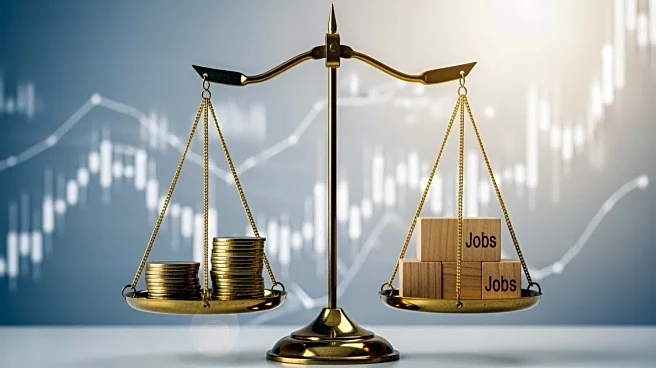What's Happening?
A study by San Francisco Fed researchers, Régis Barnichon and Aayush Singh, has found that tariffs can lead to reduced economic activity, higher unemployment, and lower inflation in the short term. This
conclusion challenges the conventional wisdom that import taxes increase prices. The study suggests that tariffs create uncertainty, affecting consumer and investor confidence, which depresses economic activity and inflation. Additionally, tariffs may cause asset prices to drop, further impacting demand and employment. President Trump's tariffs have sparked backlash due to rising costs, but the study indicates potential for improved inflation figures if economic and labor market weaknesses are tolerated.
Why It's Important?
The findings have significant implications for U.S. economic policy and public sentiment. While lower inflation might be seen as a positive outcome, the associated economic slowdown and increased unemployment could pose challenges for policymakers. The study highlights the complex trade-offs involved in tariff implementation, affecting various stakeholders including consumers, businesses, and the labor market. The political ramifications are also notable, as public dissatisfaction with affordability issues could influence electoral outcomes and policy decisions.
What's Next?
The study's implications may prompt further debate on the effectiveness of tariffs as a tool for economic management. Policymakers might need to consider alternative strategies to balance inflation control with economic growth and employment stability. The ongoing discourse could lead to adjustments in tariff policies or broader economic reforms to address the underlying issues highlighted by the research.
Beyond the Headlines
The study raises questions about the long-term impact of tariffs on economic inequality and market stability. As tariffs influence asset prices and employment, they could exacerbate disparities between different economic groups. The broader economic and social consequences of tariff policies warrant further exploration to ensure equitable and sustainable economic development.










